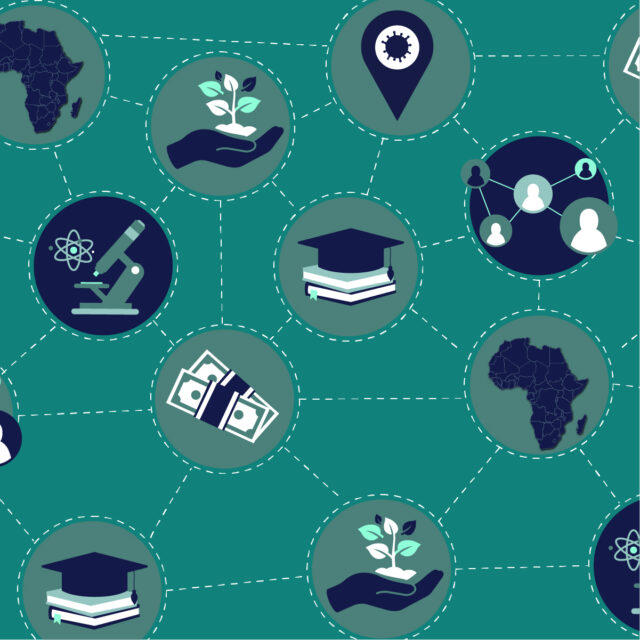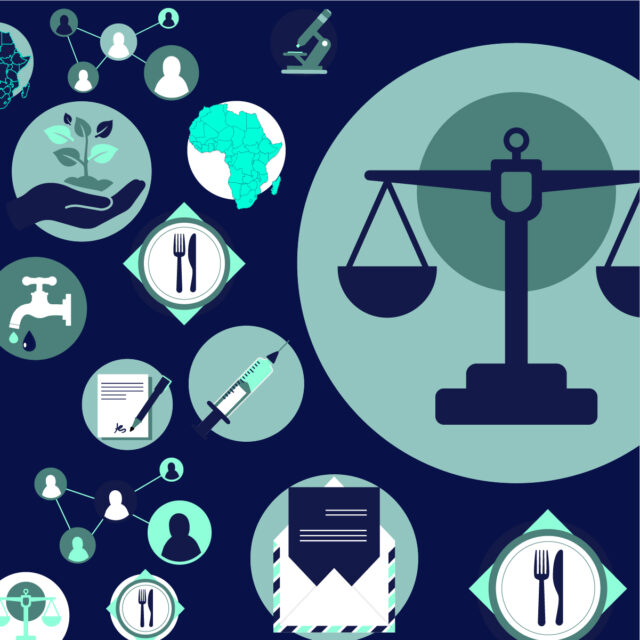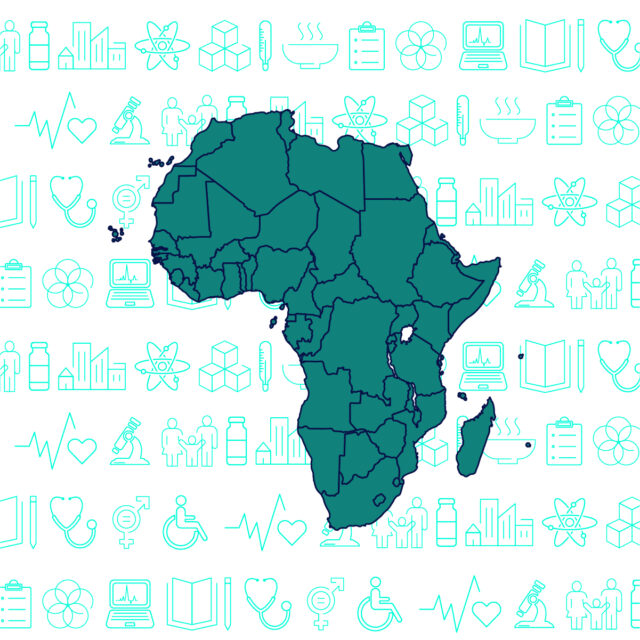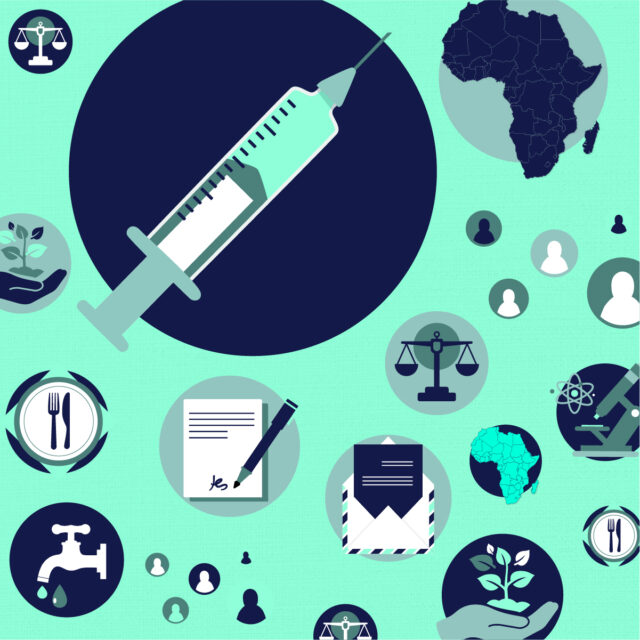A roundup of the latest news, stats, and analysis of COVID-19’s impact in Africa. View our data tracker and sign up for our weekly newsletter. This week, up to 80% of South Africans have had COVID-19, eye-popping levels of healthcare waste, and a mental health crisis born of the pandemic.
Top news
Don’t know, can’t tell: South Africa has scrapped quarantine for asymptomatic COVID-19 cases and cut quarantine times to seven days for symptomatic cases. That policy change stemmed from new research suggesting that 60-80% of South Africans have already been infected. The easing of restrictions has triggered a surge in manufacturing (which accounts for 13% of GDP). But the previously undetected high infection rate has alarming implications: According to official data, 3.6 million people (or 6%) have tested positive. A positivity rate 10-13 times higher than official rates signals severe under-testing and underreporting of COVID deaths. A similar story is taking place in Malawi and other African countries.
What a waste: 87,000 tonnes of PPE could almost entirely end up as waste globally, and nearly one-third can’t be safely bagged or stored. This jaw-dropping amount of healthcare waste highlights an urgent need to improve waste management systems, including in low-income countries. 140 million discarded testing kits could translate to 2,600 tonnes of plastic waste and 731,000 litres of chemical waste (enough to fill one-third of an Olympic swimming pool 😧). Even before the pandemic, waste in sub-Saharan Africa was expected to triple by 2050.
DIY vaccine: South Africa’s Afrigen Biologics has successfully made its own version of Moderna’s mRNA vaccine, becoming the first such vaccine entirely developed and produced on the African continent. Afrigen benefited from the publicly available sequence of Moderna’s COVID-19 mRNA vaccine. But it was left to its own devices (with help from the WHO’s tech transfer hub) to figure out the technical specifications of design and production, since Moderna unhelpfully declined to share its technology and expertise. Afrigen aims to begin human trials later this year. With just 10.9% of Africans fully vaccinated, it can’t happen soon enough.
Off course: Global supply chain bottlenecks may hit African countries the hardest in coming weeks as ships reroute to avoid COVID-induced port closures in China. That includes two of the world’s largest shipping companies, among others. Given the significance of Sino-African trade (it exceeded $185 billion from January to September 2021), the consequences are significant — and predictable. But as shipping lines falter, digital connections flourish: the ambassadors of Rwanda and Ethiopia are tapping into e-commerce to promote trade partnerships in China.
Critically low: Ghana’s COVID-induced mental health crisis is pushing its available services to a breaking point – and most care is out-of-reach for the average Ghanian. The country has just 55 psychiatrists and psychologists for 30.8 million people – compared to 46.6 per 100,000 people in the US. Financing for mental health services in Ghana is less than 0.005% of the government’s budget. To state the obvious: living through years of a global pandemic and significant economic downturns is bad news for mental, and physical, health.
Taking (self) care: Access to contraceptives was disrupted for 12 million women worldwide during the pandemic, resulting in nearly 1.4 million unintended pregnancies last year across 115 low- and middle-income countries. In better news, the number of women accessing self-administered contraceptives doubled in Niger State, Nigeria. So-called “self care” in family planning lets women and families take control of their healthcare and plan their pregnancies for when it suits them, removing the constant need to access health facilities.
Inequity redux: If high-income countries shared half their doses with low-income countries, deaths would decrease everywhere, according to a new study. Vaccine inequity enables the continued spread and mutation of the virus. As we’ve seen with the Delta and Omicron variants, this impacts everyone, regardless of where you live. To address persistent vaccine inequity, Winnie Byanyimia, head of UNAIDS, is calling for a temporary IP waiver to catalyze vaccine production. Along with South Africa, Morocco isn’t waiting: it is building a second COVID vaccine manufacturing plant and aims to produce 20 million doses a month by the end 2022 to accelerate national and regional vaccination rates.
Breaking point: The 6 million Kenyans using national health insurance were almost left without healthcare, after contract negotiations broke down between government insurers and the private hospital sector. The insurance scheme has been plagued with difficulties since its introduction in 2004, and only 11% of Kenyans are covered. Most cannot afford the cost of coverage, or are ineligible because they work in the informal sector. With the healthcare system under mounting pressure, healthcare workers went on strike across the country, frustrated by stagnant wages and a five-year freeze on promotions. Contract negotiations and strikes are ongoing.
Cold, hard, genius: Delivering vaccines to rural areas in Kenya has become possible, thanks to a young Kenyan engineer, Norah Magero. She invented a solar-powered refrigerator, the Vaccibox, which can be transported on a bicycle, motorbike, or small boat, helping to plug the cold-chain storage gap across the country. Over 70% of people in Kenya live in rural areas. Across sub-Saharan Africa, it’s nearly 60%. Access to electricity in rural areas is limited, which is what makes transporting temperature-sensitive vaccines a difficult feat. In the battle for refrigeration of vaccines in Africa, inventions like the Vaccibox are indispensable.
At fault: The military government currently controlling Mali has defaulted on nearly $32 million in bond payments. It blamed sanctions imposed by the Economic Community of West African States (ECOWAS) following the military’s refusal to hold elections before the end of 2025. Mali’s interim leadership has threatened border closures with ECOWAS member states and recalled ambassadors over the sanctions. Mali’s vaccination rate is just 3%, and the pandemic has significantly impacted the roll-out of humanitarian aid to support its 20 million people caught in the middle of the power struggle.
Deal-maker: Kenya and the EU announced plans for a Strategic Dialogues document to guide a peace and development partnership. Already making moves ahead of the AU-EU Summit this month, they also launched the $361 million Kenya-European Union Cooperation programme for environmental development. But the summit will not be drama-free: Burkina Faso has been suspended following its recent coup, and tensions are escalating between France and Mali just as France takes its turn to lead the Council of the EU. Watch this space.
The numbers
- 25.9 vaccines have been administered for every 100 people in Africa, compared to 160.7 in Europe.
- 5 million workers fell into poverty across Africa in 2020.
- $188.2 million: Djibouti’s debt payments in 2021, 3.5 times higher than in 2020.
More reads
- The best and worst places to be as we “learn” to live with COVID-19.
- We are losing a generation: The devastating impacts of COVID-19.
- COVID-19 will always be an epidemic virus — not an endemic one.
- 5 steps to vaccinating the world.
- Partnerships with Asia are going to be key to all aspects of the pandemic recovery in Africa.
- ONE launched its annual Sam Singh Award, recognizing young leaders in international development policy. Apply here.
- African countries are pushing to produce vaccines themselves, details Rasna Warah, but obstacles remain.



